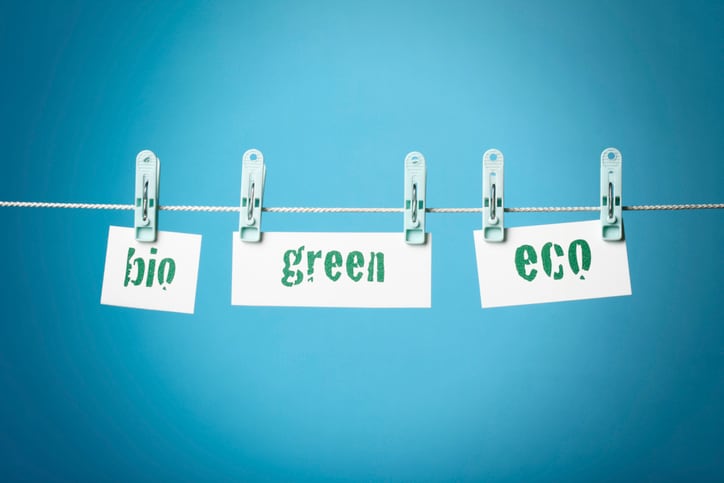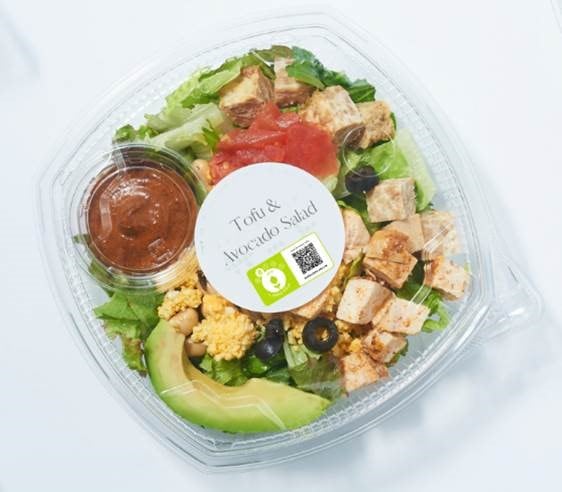With more shoppers and investors than ever considering the environmental impact of food and beverage products, authorities are upping the ante against potentially misleading environmental claims from businesses. The UK’s Environment Agency has announced a project to standardise metrics to measure the environmental performance of the food and drink sector. The UK’s Competition and Markets Authority also recently published a ‘Green Claims Code’ to help companies ensure their environmental claims do not deceive their customers.
But a shortage of guidance is currently one of the biggest challenges for food and drink producers at the moment, believes Caroline Greenwell, Partner at Charles Russell Speechlys, a law firm.

“We welcome the work the Environment Agency is currently doing to try to standardise metrics for environmental performance in the food and drinks sector,” she told FoodNavigator. “It is hoped this will help genuinely encourage eco-friendly firms to publicise their green credentials and incentivise other firms towards greener manufacturing processes. Further international collaboration may come as a result of the upcoming COP26 summit in Glasgow. But at the moment it’s a case of watching this space and working with the existing guidance.”
The current guidance is very much in its infancy, with greenwashing only recently being taken seriously by the regulators, she added. “Our expectation is that the guidance and rules will become more detailed over time.”
The CMA’s code, for example, was published following extensive consultation with businesses. Nestle strongly welcomed the guidance. But it wants further direction on what is meant by “implicit” versus “explicit” environmental claims. “This concept remains vague and its scope is unclear, which would make it difficult for businesses to identify and address,” it said, asking: “Could a product that depicts the natural world or animals be considered implicitly indicating environmental credentials?”
According to Greenwell, this question touches on a very important point: that the guidance is very nuanced. Brands are understandably anxious about what might constitute implicit environmental claims which could inadvertently come under criticism, she told us. “Our view is that producers should always err on the side of caution and consider what impression a consumer could take from an image or other depiction in designing their marketing materials. The CMA Green Code makes clear that this includes claims in advertising, marketing material, branding (including business and trading names), on packaging or in other information provided to consumers.”
Caution pays
Producers should also now be cautious of using broad terms like “environmentally friendly”, “eco” or “sustainable”. This is where many companies are falling foul of the rules and the CMA have reinforced this message in their current guidance.
“Broader, more general or absolute claims are much more likely to be inaccurate and to mislead,” warned Greenwell. “Terms like ‘green’, ‘sustainable’ or ‘eco-friendly,’ especially if used without explanation, are likely to be seen as suggesting that a product, service, process, brand or business as a whole has a positive environmental impact, or at least no adverse impact. Unless a business can prove that, it risks falling short of its legal obligations.”
Time to be cautious… Why broad terms such as ‘environmentally friendly’ and ‘sustainable’ are now difficult to justify.
The ASA has published some principles which are helpful in this area and which food and drink producers should be aware of. They should:
- explain the basis of environmental claims and qualify claims where necessary;
- ensure the meaning of the terms they use are clear to consumers;
- hold robust evidence for claims and comparisons;
- use a ‘cradle to grave’ assessment when considering a product or service’s environmental impact and base claims on the full lifecycle impact, or otherwise explain clearly the lifecycle limits of the claim; and
- not mislead consumers about the environmental benefit of a product or service
The Competition and Markets Authority (CMA) have also compiled a list of principles, which are broadly similar to the ASA list. Claims must:
- be truthful and accurate;
- be clear and unambiguous;
- not omit or hide important information;
- compare goods or services in a fair and meaningful way;
- consider the full life cycle of the product; and
- be substantiated.
Why a vacuum of guidance means firms risk falling foul of the rules
One area where the rules will become more detailed over time concerns carbon neutral claims. For example, it might be confusing to consumers if they see a ‘carbon neutral’ label on a product that might have achieved this via offsetting, a practice which many don’t believe is truly transparent.
Consumers might therefore think a product is better on these grounds without having the appreciation that another company might be committed to a slower but more robust carbon-reduction strategy without offsetting.
Greenwell recommends producers should refer back to the principles as outlined by the CMA and ASA, but admitted we are in ‘something of a vacuum of guidance, particularly of a 'uniform and global nature’.
For example, how easy it is to make truly carbon neutral claims after considering the whole lifecycle of a product? The likelihood is those who make such claims - similar to generic claims such as ‘environmentally friendly’ - may well find themselves in hot water with any applicable regulator, Greenwell warned. “We sympathise with businesses at the moment who are having to deal with this complex area without detailed guidance covering every scenario. Adherence to the core principles and the exercise of a conservative approach towards claims while this situation subsists should ensure that companies don’t inadvertently fall foul out of the rules.”
Another challenge for food and drinks producers is complying with the rules in multiple jurisdictions, particularly as there aren’t any internationally agreed standards. “Some countries such as the UK and the US are more active in this space than others, but globally such regulations are very much in their infancy,” Greenwell observed. “Producers will therefore have to keep on top of the evolving regulatory landscape in multiple jurisdictions to ensure they don’t fall foul of any future regulations.”
An example of a food producer falling foul of the regulators in the UK is meal kit subscription service Gousto. The Advertising Standards Agency (ASA) last year found it had made false claims about its packaging on a number of blog posts in which they claimed its Eco Chill Box was “100% plastic fee and recyclable”.
This case was particularly interesting, Greenwell noted, because it concerned blog posts as opposed to branding and packaging. “So we would urge businesses to pay as much attention to their social media marketing as their more traditional marketing collateral.”
Gousto has since looked to pioneer eco-labelling to help customers to make more environmentally conscious dinner choices.
The end of greenwashing? Or more opportunities for some firms to deceive customers?
Greenwell further cautioned that ‘genuinely eco-friendly firms’ are ‘probably’ going to struggle to get the recognition they deserve given the scepticism that is emerging of brands’ green claims as a result of greenwashing.
“Ultimately the focus is on weeding out those who are presenting misleading claims, rather than seeking to validate the claims of those who are genuinely accurate,” she said. “One would hope that with enough reporting and calling out of the misleading claims, consumers will be in a position to make their own, informed choices and those eco-friendly companies will be rewarded for their genuine environmental commitment through consumer loyalty and increased revenue.”





